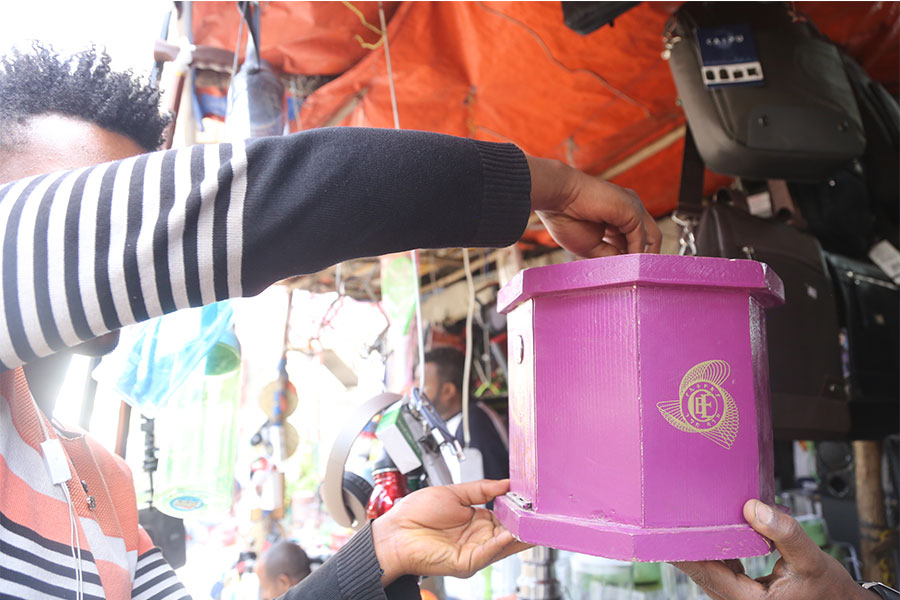
Addis Abeba City Administration has started allotting land to all the banks in the country based on the lease proposals they provide. Upon an agreement with the City Administration, the banks will be able to get the lands without competitive bid procedures.
Allocation of new pieces of land, the size of which will be determined following negotiations between the City Administration and banks, is aimed at supplementing the effort of banks in modernizing finance.
“The allocation of the plots of land will be in line with the master plan of the city and the amount of the lease is undisclosed until the banks and the land management office reach an agreement,” said Shemeles Eshetu, head of the Addis Abeba City Land Development & Management Office.
Awash Bank is already in the process of acquiring land from the city, and is still awaiting a letter of confirmation to finalise the procedure after the City Administration’s cabinet agreed to award the 8,700Sqm plot.
The Bank is planning to build a 50-storey skyscraper at a cost of 12 billion Br. It plans to spend close to 173 million Br to lease the land, according to Tsehaye Shiferaw, president of the Bank.
“The main reason for the banks to obtain the land is to construct their headquarters and facilities,” said Zafu Eyessuswerk, a former president of the Ethiopian Chamber of Commerce & Sectoral Association and founder and board chair of United Bank.
The price of land has become expensive, and it is extremely difficult to cope with the market, according to Zafu.
“The City Administration allocated land at the cost of the current retail price,” he said.
In the current master plan of the city, land has been allocated to financial institutions in and around the Senga Tera area for the construction of headquarters, which is fast becoming the financial district of the city.
Wegagen and Dashen banks are among the most recent to have constructed and inaugurated headquarters in the area. Zemen, United and Nib banks are just some of the major banks that have headquarters under construction.
Commercial Bank of Ethiopia (CBE) is also undertaking the construction of its headquarters, which is expected to be the tallest upon completion. Started in 2015 with a design and build deal with the China State Construction & Engineering Corporation, it is expected to cost the bank 5.3 billion Br.
Zafu insists that land alone will not guarantee the growth of the banking industry.
“The banks have to develop their capacity in terms of building a critical role in improving the financial system,” he said.
It has been a century since the establishment of Ethiopia's first bank, Bank of Abyssinia. By 1905, the same bank began issuing the first Ethiopian banknotes. Following the liquidation of the Bank in 1931, the Bank of Ethiopia was formed. The National Bank of Ethiopia was established to regulate the banking industry in 1964.
Ethiopia’s banking industry has shown substantial growth ever since the opening up of the sector to private players in the early 1990s. There are currently 18 banks with over 2,300 branches and 35 microfinance institutions.
It saw a 23.6pc spike in deposit mobilisation and disbursed 115.4 billion Br in loans in the past fiscal year.
Isaac Kenifmikaeal, an architect at ZIAS Consulting Architects & Engineers, commends the allocation of the land from an urban design vantage point.
“One of the advantages of having business engaged in the same sector at one location is to give an architectural color to the city and enhances creative building designs,” he said. “Building designs at city centres tend to be more environmentally friendly and have positive influences on improving the looks of the area. However, they will drain open space areas such as green areas and parking lots.”
PUBLISHED ON
Nov 09,2019 [ VOL
20 , NO
1019]

Editorial | May 03,2025

Radar | Apr 12,2020

Radar | Aug 03,2019

Fortune News | Feb 02,2019

Commentaries | Oct 30,2022

Radar | Jun 12,2021

News Analysis | Jul 07,2024

Commentaries | Mar 25,2023

Featured | Feb 16,2019

Radar | Nov 14,2020

Dec 22 , 2024 . By TIZITA SHEWAFERAW
Charged with transforming colossal state-owned enterprises into modern and competitiv...

Aug 18 , 2024 . By AKSAH ITALO
Although predictable Yonas Zerihun's job in the ride-hailing service is not immune to...

Jul 28 , 2024 . By TIZITA SHEWAFERAW
Unhabitual, perhaps too many, Samuel Gebreyohannes, 38, used to occasionally enjoy a couple of beers at breakfast. However, he recently swit...

Jul 13 , 2024 . By AKSAH ITALO
Investors who rely on tractors, trucks, and field vehicles for commuting, transporting commodities, and f...

Jun 28 , 2025
Meseret Damtie, the assertive auditor general, has never been shy about naming names...

Jun 21 , 2025
A well-worn adage says, “Budget is not destiny, but it is direction.” Examining t...

Jun 14 , 2025
Yet again, the Horn of Africa is bracing for trouble. A region already frayed by wars...

Jun 7 , 2025
Few promises shine brighter in Addis Abeba than the pledge of a roof for every family...